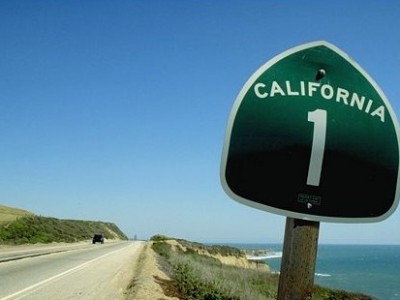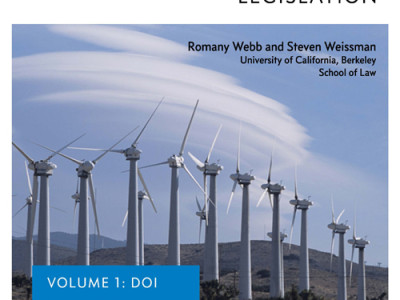Energy
PART III – EPA’s Proposed 111(d) Rule: Some Insights & Open Legal Questions
The third in a series of posts offering some initial insights and observations, and posing several open legal questions for conversation
This is the third in a series of posts offering some initial insights and observations, and posing several open legal questions related to EPA’s proposed 111(d) rule. (See the first and second posts.) Over the course of this series, I welcome our knowledgeable and insightful LegalPlanet audience to join the dialogue in the comments. What …
Continue reading “PART III – EPA’s Proposed 111(d) Rule: Some Insights & Open Legal Questions”
CONTINUE READINGPART II – EPA’s Proposed 111(d) Rule: Some Insights & Open Legal Questions
The second in a series of posts offering some initial insights and observations, and posing several open legal questions for conversation
This post is the second in a series of posts offering some initial insights and observations, and posing several open legal questions related to EPA’s proposed 111(d) rule. (See the first post here.) Over the course of this series of posts, I welcome our knowledgeable and insightful LegalPlanet audience to join the dialogue in the …
Continue reading “PART II – EPA’s Proposed 111(d) Rule: Some Insights & Open Legal Questions”
CONTINUE READINGLegislative Tantrums Over EPA’s Proposed Carbon Rule
Politico reports that eight state legislatures have passed bills protesting EPA’s proposed power plant regulation, in at least one case refusing to comply with any eventual regulations. This was a childish tantrum rather than an adult response. The ultimate hope, according to Politico, is that many states will refuse to submit compliance plans, and that this …
Continue reading “Legislative Tantrums Over EPA’s Proposed Carbon Rule”
CONTINUE READINGCalifornia, climate change, and 111d
Four things the Golden State will note about EPA’s power plant proposal
Here are four aspects of the 111d proposal of particular note to Legal Planet’s home state. (1) California played a key role in helping to inspire — and to justify as lawful — EPA’s building-blocks approach to setting state goals. EPA frequently refers to California’s suite of successful greenhouse gas mitigation programs as a partial model for …
Continue reading “California, climate change, and 111d”
CONTINUE READINGEPA’s Proposed 111(d) Rule: Some Insights & Open Legal Questions (PART I)
The first in a series of posts offering some initial insights and observations, and posing several open legal questions for conversation
As LegalPlanet reported earlier this week, EPA has released a proposed rule to regulate carbon dioxide (CO2) emissions from existing power plants under Clean Air Act § 111(d). You can read the full text of the proposed rule here. The rule would have the overall effect of reducing CO2 emissions from existing power plants or “electric generating units” …
Continue reading “EPA’s Proposed 111(d) Rule: Some Insights & Open Legal Questions (PART I)”
CONTINUE READINGObamacare’s lessons for the future of EPA’s CO2 rule
The survival of the greenhouse gas rule depends on how much people invest based on it
There has (rightly) been a lot of attention paid to the EPA proposed rule controlling greenhouse gas emissions from powerplants pursuant to Clean Air Act Section 111(d). All of that analysis – how effective the rule will be; how it will be implemented; the prospects for successful legal challenges to the rule – is important. …
Continue reading “Obamacare’s lessons for the future of EPA’s CO2 rule”
CONTINUE READINGDo EPA’s Carbon Emissions Rules Point to a New Climate Treaty? Nope.
The Future Global Climate Regime Will Not Rely on an International Accord
The irrepressible Jonathan Chait continues to do what he does best: shredding the GOP’s neanderthal nihilism on climate (or as Andrew Sullivan notes, the Republican Party has become “a reckless, know-nothing, post-modern fantasy machine.”). But Chait makes one big leap of logic that should actually be scotched. Chait points out that contrary to conservative predictions that …
Continue reading “Do EPA’s Carbon Emissions Rules Point to a New Climate Treaty? Nope.”
CONTINUE READINGJudicial “Smoke Signals” and the 111(d) Rule
In an earlier post, I suggested that EPA’s decision about how broadly to write the final version of the 111(d) rule might be affected by the Supreme Court’s decision in the pending UARG case. I made the suggestion without much explanation, and it apparently didn’t come across very clearly. So I thought it would be worth …
Continue reading “Judicial “Smoke Signals” and the 111(d) Rule”
CONTINUE READINGAddressing Climate Change Without Legislation
A new report from UC Berkeley looks at the underused powers of the US Department of the Interior.
Now that the Environmental Protection Agency has announced its proposed rules for restricting greenhouse gas emissions from existing power plants, the climate focus of EPA and the states will first be on polishing the rules for final approval, then on the anticipated law suits, and then on the development of state plans to meet the …
Continue reading “Addressing Climate Change Without Legislation”
CONTINUE READINGEPA Releases Section 111(d) Rule for Existing Power Plants
Rule would reduce climate change-related carbon dioxide emissions from existing power plants 30 percent below 2005 levels by 2030
Today, EPA formally released its long-awaited rule to regulate carbon emissions from existing power plants under Clean Air Act § 111(d). Read the full text of the rule here. As leaked to the media yesterday, the rule would have the overall effect of reducing carbon dioxide emissions from electric generating units (EGUs, or power plants) 30 percent …
Continue reading “EPA Releases Section 111(d) Rule for Existing Power Plants”
CONTINUE READING








